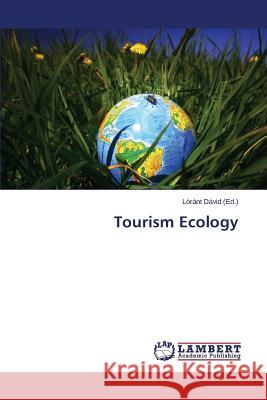Tourism Ecology » książka
Tourism Ecology
ISBN-13: 9783659762468 / Angielski / Miękka / 2015 / 324 str.
Tourism and sustainable development have been a much studied and contested field of research. Our work can therefore be seen as an experiment - in fact, it is intended to be a debate paper. We cannot even claim that this volume was born of a healthy compromise. We have different opinions of the definitions, processes, phenomena and the current system of tourism itself. The most contested concepts were included in the title - time will tell whether we were right to do that. We are aware that the concept and interpretation of the development of tourism on an ecological basis - or in other words, tourism ecology - will be debated at least to the extent that landscape ecology was, back in the time. We expect ourselves to make changes to how it is interpreted, how it is viewed, in light of the new scientific findings. We consider this volume a monograph, a reference book and a textbook at the same time. Who are we recommending it as a monograph? To researchers, to discuss. Who is it addressed to as a reference book? To teachers so that they may use it in their lessons. Finally, it is a textbook for our valued students who find the topic of responsible tourism development interesting.
Tourism and sustainable development have been a much studied and contested field of research. Our work can therefore be seen as an experiment - in fact, it is intended to be a debate paper. We cannot even claim that this volume was born of a healthy compromise. We have different opinions of the definitions, processes, phenomena and the current system of tourism itself. The most contested concepts were included in the title - time will tell whether we were right to do that. We are aware that the concept and interpretation of the development of tourism on an ecological basis - or in other words, tourism ecology - will be debated at least to the extent that landscape ecology was, back in the time. We expect ourselves to make changes to how it is interpreted, how it is viewed, in light of the new scientific findings. We consider this volume a monograph, a reference book and a textbook at the same time. Who are we recommending it as a monograph? To researchers, to discuss. Who is it addressed to as a reference book? To teachers so that they may use it in their lessons. Finally, it is a textbook for our valued students who find the topic of responsible tourism development interesting.











